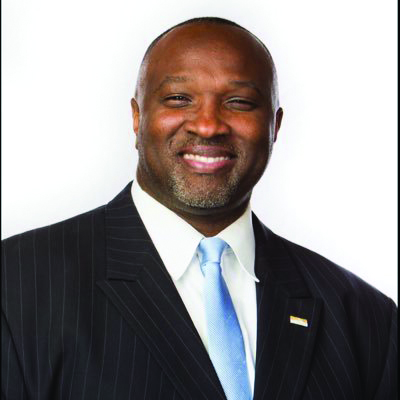National Commentary
Vote 2018 – America is on the Ballot

The 2018 midterm elections are nearly upon us.
The United States of America, in 2018, is at a major crossroads and there is too much at stake to simply ignore the importance of this critical election.
If ever there was a time to vote, that time is now. And while there will be many candidates whose names will appear on ballots across this country, it is actually the future of the United States of America that is the most important thing on the ballot this November.
The current president has single-handedly emboldened the worst elements of society to openly express their racist views and bigotry in ways that have not been blatantly seen in America since the days of the Civil Rights struggle.
The Civil Rights Act of 1964, the Voting Rights Act of 1965 and other legislation that was introduced, helped to deal with issues of racism, police brutality, economic disenfranchisement, discriminatory judicial practices and attacks on voting rights that have existed in this country since inception. However, the unrepentant hearts of racists in this country came to the forefront once again after the election, and subsequent re-election, of the nation’s first Black president in 2008 and 2012 respectively – President Barack Obama.
The current administration has shined a light on the darkness of racism and bigotry that has long been ignored and swept under the rug in this country. The divisive rhetoric and activity that this current administration has boldly encouraged, has now trickled down to many cities and states across this country, which is why voting in local and state elections is so important.
“All politics is local” is a popular political saying that is most often associated with former Democratic House Speaker Thomas P. “Tip” O’Neill, Jr. When you think about the phrase in itself, it makes sense that the things that impact you the most take place on the local level.
Taxation without representation is a horrible position to be in. The President of the United States, whoever that elected person may be, plays an important role in what affects Black people, but the president can only do so much. All of the key decisions and pieces of legislation that impact Black people on a daily basis are made by individuals who are elected by regular citizens at the local, county and state levels of government. Those who are elected to office by regular citizens, then have the ability to appoint people to other key positions, as well as enact laws that will undoubtedly affect the quality of life of everyone, including those who didn’t vote.
The detrimental outcome of Black people choosing to completely disengage from the political process and choosing not to vote is a costly one. A non-vote is still relevant and just as powerful as if a vote were actually cast. President Donald J. Trump understood that, and expressed his sincere gratitude for a great majority of Black people choosing not to come out and vote in 2016.
After winning his election against Democratic nominee Hillary Clinton, Trump told a crowd of supporters at a 2016 rally in Grand Rapids:
“The African-American community was great to us. They came through, big league. Big league. If they had any doubt, they didn’t vote, and that was almost as good, because a lot of people didn’t show up, because they felt good about me.”
At another rally the following week, Trump once again expressed his appreciation for Blacks choosing to stay home and not vote, saying:
“We did great with the African-American community … They didn’t come out to vote for Hillary. They didn’t come out. And that was big – so thank you to the African-American community.”
According to the Pew Research Center, the Black voter turnout rate in 2016 declined for the first time in 20 years in a presidential election, falling to 59.6 percent in 2016, after reaching a record-high 66.6 percent in 2012 when President Obama was re-elected. The number of Black voters who went to the polls in 2016 also declined, falling by approximately 765,000 voters. In contrast, Whites were motivated to come out and vote, primarily because of the polarization of Trump, and had an increase in their voter turnout rate – 65.3 percent in 2016 versus 64.1 percent in 2012.
This November, Black people must take voting and politics seriously if they are going to see collective changes in their communities, in their social status and in their daily lives.
Jeffrey Boney is a political analyst for the NNPA Newswire and BlackPressUSA.com and the associate editor for the Houston Forward Times newspaper. Follow Jeffrey on Twitter @realtalkjunkies.
By Jeffrey L. Boney
Associate Editor
Houston Forward Times














